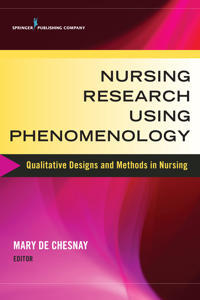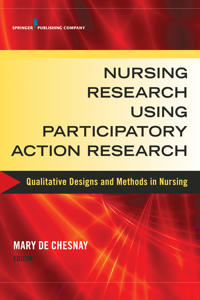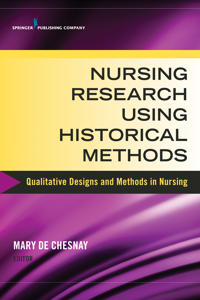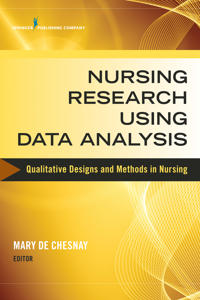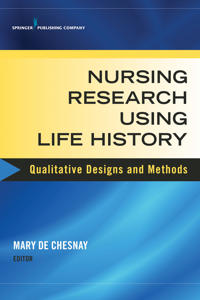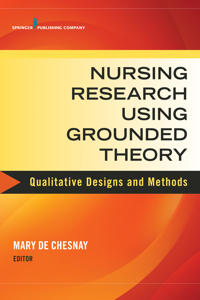Nursing Research Using Phenomenology (Pocket)
avMary De Chesnay, Jeffrey McCurry, Mary De Chesnay
ISBN: 9780826126863 - UTGIVEN: 2014-11Phenomenology is a descriptive approach to obtaining knowledge that focuses on capturing the essence of human experience through the point of view of a distinct individual. As a form of qualitative nursing research, it provides a perspective apart from that of empirical sciences which see the human [...]
Nursing Research Using Participatory Action Research (Pocket)
avMary De Chesnay
ISBN: 9780826126139 - UTGIVEN: 2014-12Participatory Action Research is a qualitative research method conducted in collaboration with a community of people in order to effect changes in the community that are relevant to the residents. This is a practical, ""how-to"" resource to conducting Participatory Action Research that guides reader[...]
Nursing Research Using Historical Methods (Pocket)
avMary De Chesnay
ISBN: 9780826126177 - UTGIVEN: 2014-12This is a concise, step-by-step guide to conducting qualitative nursing research using various forms of historical analysis. It is part of a unique series of books devoted to seven different qualitative designs and methods in nursing, written for novice researchers and specialists seeking to develop[...]
Nursing Research Using Data Analysis (Pocket)
avMary De Chesnay
ISBN: 9780826126887 - UTGIVEN: 2014-12This is a concise, step-by-step guide to conducting qualitative nursing research using various forms of data analysis. It is part of a unique series of books devoted to seven different qualitative designs and methods in nursing, written for novice researchers and specialists seeking to develop or ex[...]
Nursing Research Using Life History (Häftad)
avMary De Chesnay
ISBN: 9780826134639 - UTGIVEN: 2014-09Life history is a qualitative research method used to understand how people successfully cope with illness, traumatic events, or other afflictions. Individual histories are told to the researcher, who in turn frames the story within the cultural context in which the person lives. In this book, exper[...]
Nursing Research Using Grounded Theory (Häftad)
avMary De Chesnay
ISBN: 9780826134677 - UTGIVEN: 2014-09Grounded theory is a qualitative research approach used to develop theory about a phenomenon that is rooted in observation of empirical data. This method enables researchers to apply what they learn from interviewees to a wider client population. A researcher using grounded theory begins by posing b[...]

